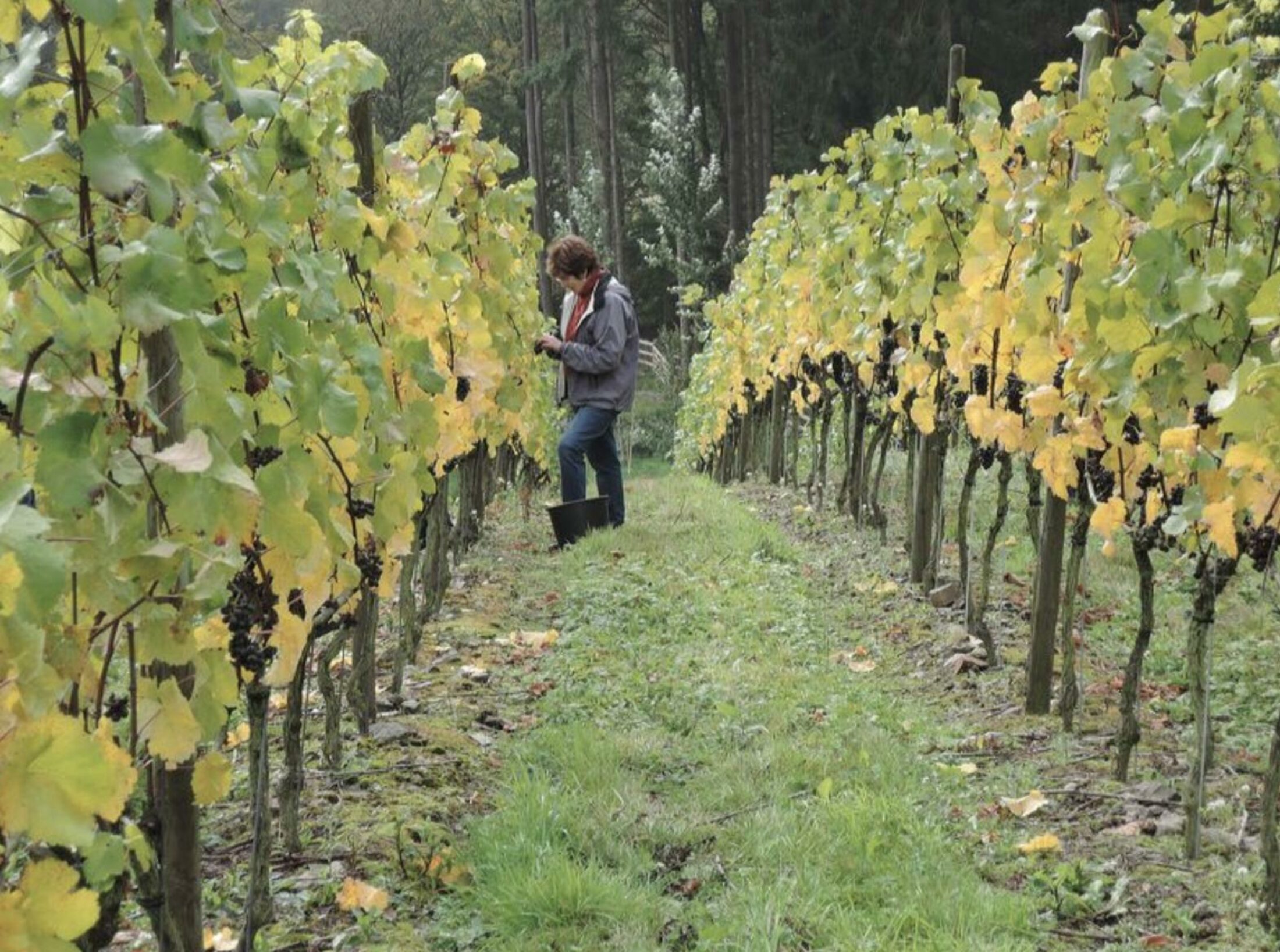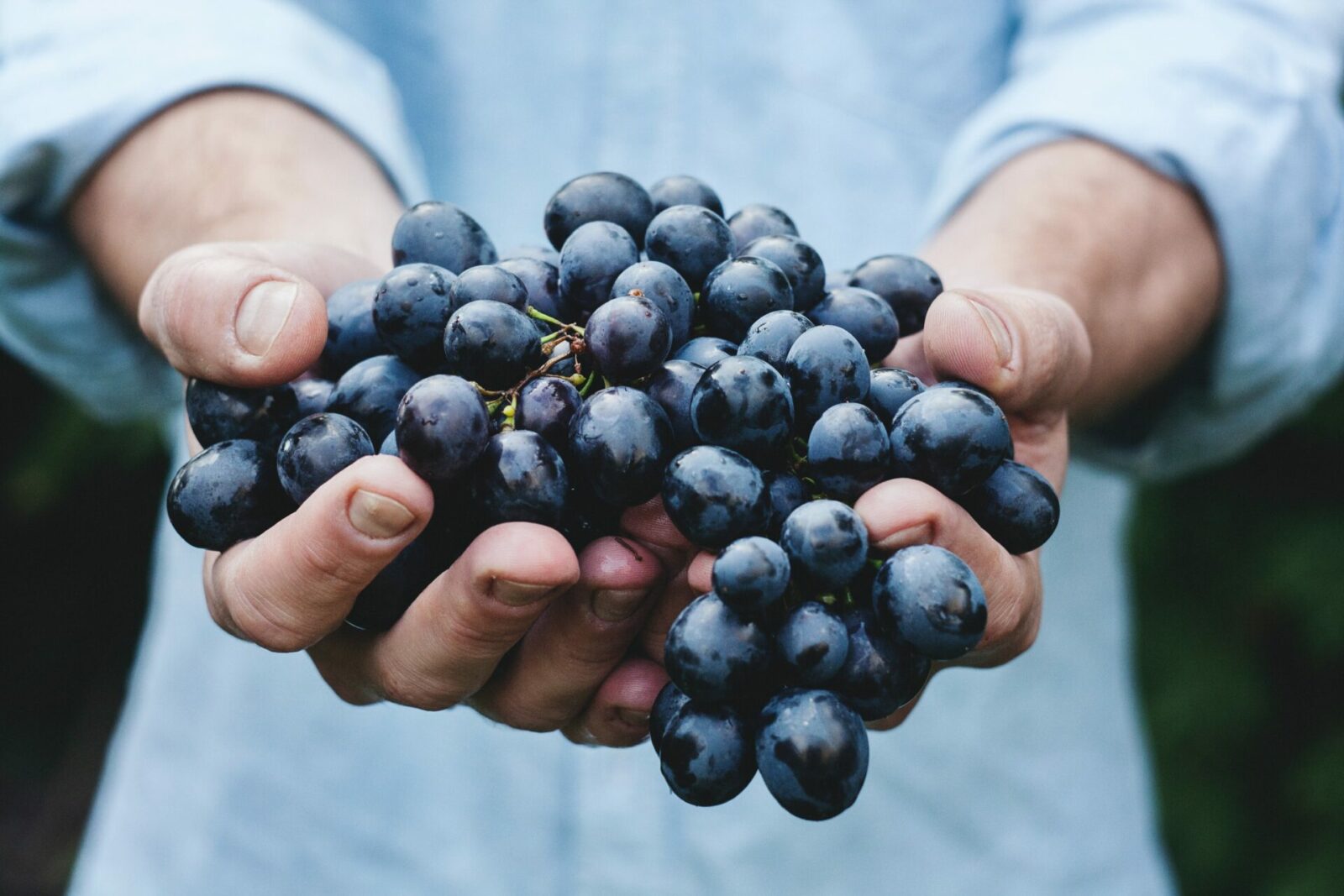Meeting the local wine growers

Discover the wine-growing areas around the Charleroi Metropolitan Area where the passion of a handful of growers is increasingly winning over the trained palates of connoisseurs.
More and more Metropolitans are delving back into our wine-growing past. Here on home soil, our first vines date back to the 8th century and by the 14th century the majority of Belgian settlements had their own vineyards. The practice was then discontinued to make way for beer, due to the cooler climate and the development of transport links which made it easier to import this divine nectar.
In the Charleroi Metropolitan Area, wine production is booming; every year, more and more hectares are being planted with vines, and some amateur wine growers are making it their profession.
The Clos des Zouaves estate in Thuin
The Biercée Distillery planted 1000 vines around Thuin’s hanging gardens in 2001. The estate’s name pays homage to the Zouaves in the Company of Saint-Roch from Thuin. The first harvest, 2 years later, produced no fewer than 500 bottles.
In 2011, the not-for-profit association “Le vignoble thudinien” took over the vines and started managing the harvests and wine-making process. They maintain the vines in a natural way by planting white clover (locks in moisture), reed beds (ward off aphid attacks) and using Bordeaux mixture.
Since 2012, this group of volunteers has been making sweet natural wine (reminiscent of Banyuls and Maury), characterised by a sweet taste and high alcohol content (18%). The Clos des Zouaves vineyard produces an average of 1000 bottles each year.

The Nalinnes Wine growers
Five friends from Nalinnes, all passionate about wine, and known as the “the Wine growers of Nalinnes”, planted a vineyard on their land in 2017. It comprises 12 rows of 1000 muscaris vines.
The first harvest in 2019 produced a sparkling wine, with the first bottles ripe for tasting in October 2020.
The Martinet vineyard, on a slag-heap at Monceau-sur-Sambre and Roux
The not-for-profit association “Vins et Gourmandises” planted 400 vines from 3 grape varieties (Muscaris, Souvignier Gris and Johanniter) on a slag-heap (2600 m2). The team of volunteers maintain the vineyard and oversee the wine-making process. The first harvest will take place in 2022 with a view to producing a blended white wine. First tasting is set for 2023.
This hands-on and educational vineyard mainly aims to show people how vines and the wine-making process work. The bottles of wine will be tasted at events and visits to the site.

The Tienne’al Gatte estate in Philippeville
Two friends, Geoffroy and Jérôme, planted 4,400 vines in Sautour (Philippeville) last May. The Tienne’al Gatte estate vineyard spans over a hectare and applies the principles of permaculture. A draught-horse helps to maintain the vineyard, and beehives promote pollination.
The two comrades’ ultimate aim is to plant a total of 6,500 vines. They would like to produce sparkling, red and white wine.
The Portelette estate in Lobbes
In 2017, Pierre Conreur, Bertrand Halbrecq and Cosimo Secondo decided to get the Portelette estate vineyard off the ground. Setting up as a cooperative, they planted 7,500 vines on the Grand Brûlé plot at Lobbes in 2018. They convened wine-lovers to take part in managing the property and working on the vines.
These new wine growers opted for 3 grape varieties (Johanniter, Muscaris and Souvignier Gris) to produce white wines and one sparkling wine, labelled organic.

The Blanc Caillou estate at Montigny-le-Tilleul
It was the fortuitous meeting between a resident of Montigny-le-Tilleul, an amateur wine grower, and the director of the local quarry which gave a new lease of life to this land measuring 1.5 hectares, situated between the Sambre and the quarry. The project really began to take shape when a cooperative society with a social purpose was founded to grow the vines and produce wine.
In 2016, 6,000 Fercal vines were ordered for the Blanc Caillou estate. They act as the root stock for 5 grape varieties (Johanniter, Polaris and Souvignier Gris, Régent and Divico).
Embrace the passion of these artisan wine growers and let yourself be swept into the world of vines and wine-growing, on a human scale.